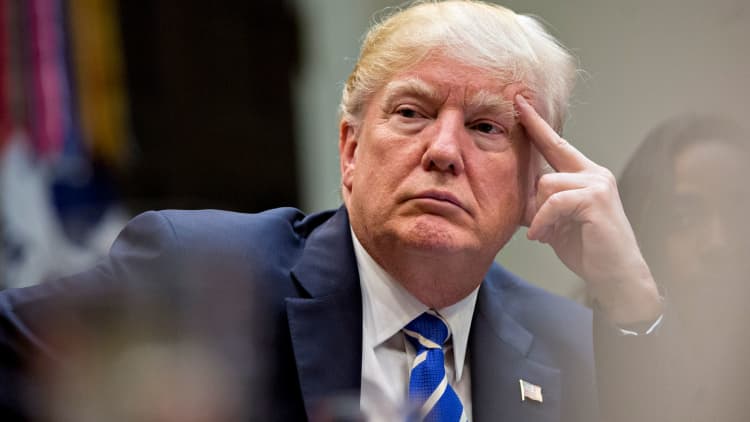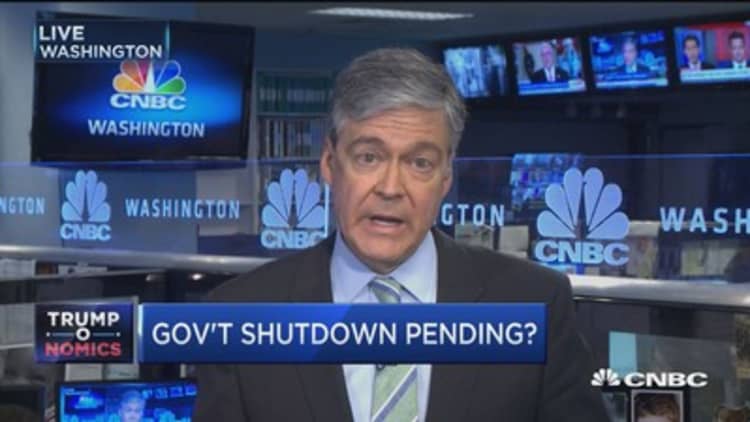
After watching the House stumble over health care last week, Jim McCrery wonders when his former colleagues will reach the conclusion he did as a conservative Republican lawmaker. It won't come to them easily.
"You have to have something like Obamacare if you want a health care system that gets as many people covered as possible that's not single payer," McCrery says. "That's what Republicans have to realize sooner or later. That's their choice."
McCrery came to that judgment in two decades representing a Louisiana district that Donald Trump carried last November with 60% of the vote. He reflected his constituents' conservatism and displayed enough command of policy issues that Republican leaders put him on track to chair the powerful House Ways and Means Committee.
After studying health care, the Republican lawmaker settled on elements of a plan to reduce the number of Americans without insurance while preserving the private health-care system his party values. Those elements: an individual mandate to spread risks by placing everyone in the same insurance pool; a minimum benefit package to ensure all customers were adequately covered; "community rating" to prevent high-cost patients from being charged more; subsidies to help low-income Americans purchase coverage. To protect insurers from the misfortune of covering an unexpectedly high number of high-cost patients, he suggested a "reinsurance fund" to help them cope.
McCrery never got a chance to enact that approach he outlined in 2000. But Mitt Romney did as governor of Massachusetts in 2006, and President Barack Obama did from the White House in 2010, a year after Mr. McCrery retired from Congress.
Will today's House and Senate arrive at that position? Not soon, since after seven years of Republican rhetoric assailing Obamacare, a substantial chunk of the party's caucus in the House still wants to repeal the program. Many opposed Speaker Paul Ryan's plan on the grounds it did too much.
But the outcome of last week's debate underscored the peril of trying to diminish benefits that millions of Americans have come to value in the seven years since Obamacare passed.
"A private health insurance system, which I believe can manage the provision of health care better (and) more efficiently than government, needs to have a large pool of insureds in order to succeed," McCrery explained. "Anything less leads to coverage gaps in the population that will eventually become politically untenable, leading to a government-run single payer system."
Speaker Ryan and President Trump have both signaled a new phase of the health care debate. "We're going to be living with Obamacare for the foreseeable future," Ryan said; Trump talked of now working with Congressional Democrats on new legislative steps.
McCrery says one simple fix would revive competition on Obamacare exchanges that some insurers have fled: restore the so-called "risk corridors" that helped cover shortfalls for companies that unexpectedly found themselves with a disproportionate number of high-cost patients. Republicans in 2014 blocked the Obama administration from making such payments, a feat Sen. Marco Rubio boasted about during his unsuccessful 2016 Republican presidential campaign.
"That would get insurance companies back in the game," he said. Other steps to bolster the program could include stronger penalties for Americans who defy Obamacare's "individual mandate" to purchase coverage, and larger subsidies to make more Americans want to purchase coverage.
All three would find support among Democrats. But all are highly unlikely to clear Congress given the ideological orientation of current House and Senate Republican majorities.
Consider the views of the man who now represents McCrery's old Louisiana district. After the GOP health care bill was pulled from the House floor last week, Rep. Mike Johnson called for legislation "which fully repeals Obamacare and relieves businesses and families of its burdens."
— By CNBC's John Harwood. Follow him on Twitter: @JohnJHarwood
Watch: Legislative land mines & a government shutdown



